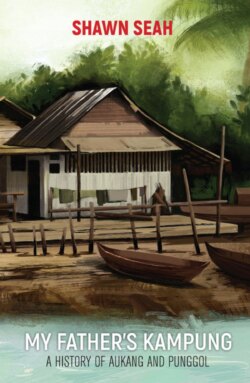Читать книгу My Father's Kampung - Shawn Seah - Страница 6
На сайте Литреса книга снята с продажи.
Foreword
ОглавлениеBy Robert Yeo Poet, playwright, and author of Routes 1940-75: A Singaporean Memoir
I lived in Valley Road, Singapore, for 26 years. From 1940 to September 1966, when I left for London for further studies, it was the only home I knew, the house of my father and his father. I walked to Serangoon English School on Simon Road and played on Valley Road, so called because the road inclined a little downhill, enough to present a problem to hawkers on bicycles. There was a famous bakery there owned by a Hainanese family. Head up Upper Serangoon Road and to the right was Lim Ah Pin Road, home to the community centre and Boys’ Club where I played table tennis.
I could go on writing about my kampung, but I will not have to, as now I have found a book that does it for me, better than I could.
I am delighted to contribute this foreword for the following reasons. First, Shawn Seah reminds me of people and places I know of, and second, of people and places I did not know of. That he is able to do so is a tribute to his passion and scholarship in documenting the social history of Hougang, or Aukang as it was then called before the HDB came in.
He has wisely chosen to see a large part of it through the eyes of his father and thus has performed a wonderful filial duty. Additionally, he has personalised his narrative so that it is not a dry, objective account but a highly-individualised one. The lively interviews with prominent Teochews of the area and the apt photos and illustrations all add up to a comprehensive and intriguing tale.
A third reason for recommending this book is that, while he focuses on the Teochew Catholics, he has included those who are Eurasians, Malays, Indians, Hokkien Peranakans, and others who made up the multi-ethnic composition of Aukang. The constituency is thus seen as a typical patchwork of the larger Singapore identity.
Finally, he has cleverly linked the old Aukang, which comprised the fifth and sixth mile precincts, and Kangkar and Punggol, to the new, enormous developments that is now Sengkang and other districts. In this way, he has provided continuous engagement between the OLD that his father knew with the transformed, beyond recognition—NEW.
